What does it mean to be Welsh in 2022?
- Published
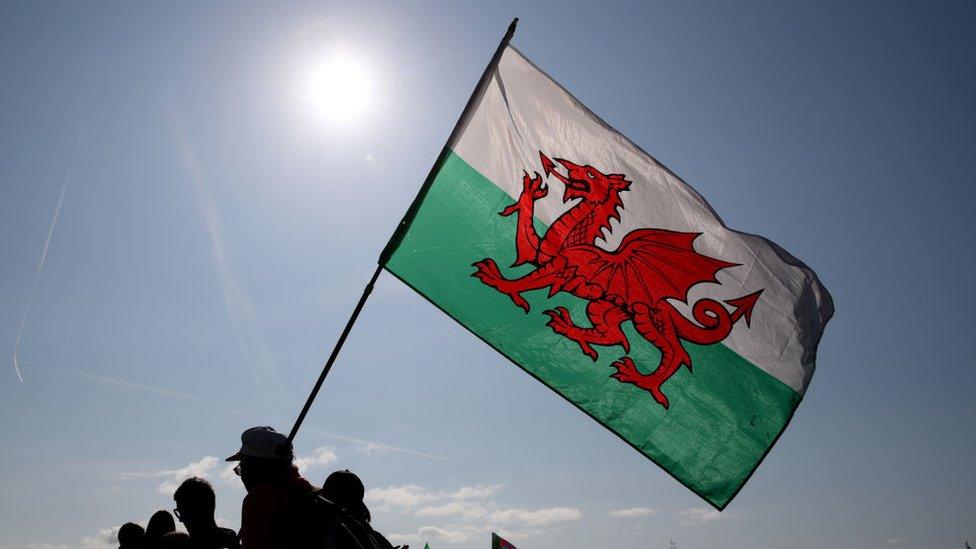
BBC Radio 5 Live has been looking at how some people see their Welsh identity
When Wales qualified for the World Cup for the first time since 1958, the players celebrated on the pitch by singing Welsh language anthem Yma O Hyd with its composer, Dafydd Iwan.
Then earlier this week, tourism bosses said Wales needed to move away from "sheep, wet weather and rugby" and promote adventure tourism, food and drink and heritage sites instead.
These events have brought Welsh identity and its relationship with language, sport and music into sharper focus.
As part of a summer tour exploring national identity across the UK, Radio 5 Live's Nihal Arthanayake has broadcast a special programme from Caernarfon in Gwynedd.
In Gwynedd, more than 75% of people can speak Welsh, compared with just under 30% across the rest of the country.
We asked some people who live in the area what it means to be Welsh in 2022.
'People will deny you your Welsh-ness for all sorts of reasons'
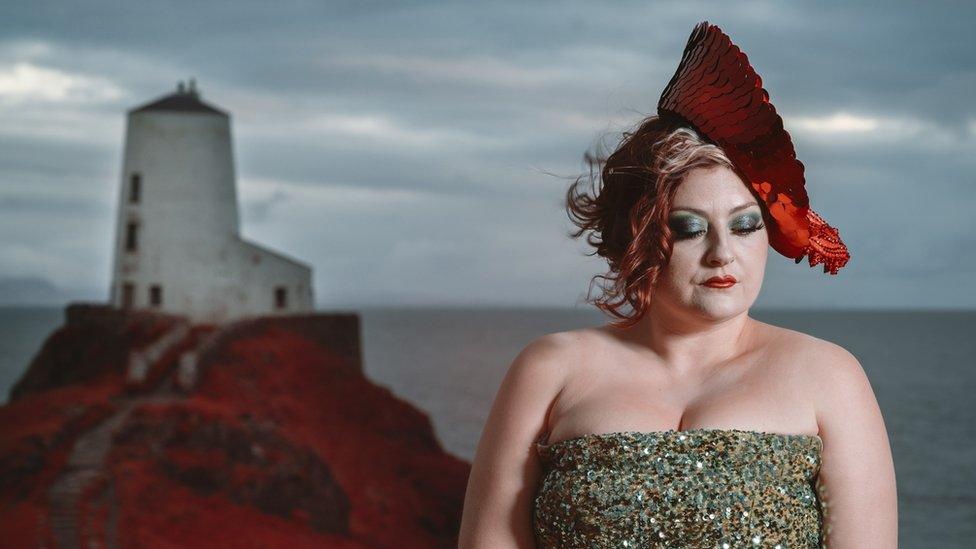
Comedian Kiri Pritchard-McLean has reconnected with her Welsh-ness since learning the language
Comedian Kiri Pritchard-McLean, who grew up on a farm on Anglesey, said she used to tell everybody she was English - until she left Wales.
"I went to university in England and I suddenly felt very Welsh and being around people from there, meeting other Welsh people from all over Wales.
"I felt there was something that felt like there was something like a kindred spirit with them."
Kiri has been learning Welsh for the past year and can now "comfortably converse" in the language, something she said helped her feel "very Welsh".
She said her father, a Welsh speaker, used to chastise her for speaking "horrible Welsh", leading to panic and paranoia when speaking the language with someone new.
"But then as soon as I've started a few sentences and I'm away, I'm absolutely fine," she said.
"There's a lot of gatekeeping that goes with Wales and people's identities - people will deny you your Welsh-ness for all sorts of reasons.
"I guess becoming fluent, even though I don't agree with them and I don't think anybody gets to tell anyone where they're from, it's still important to me that I'm able to speak Welsh."
'You get more poetic licence through Welsh'
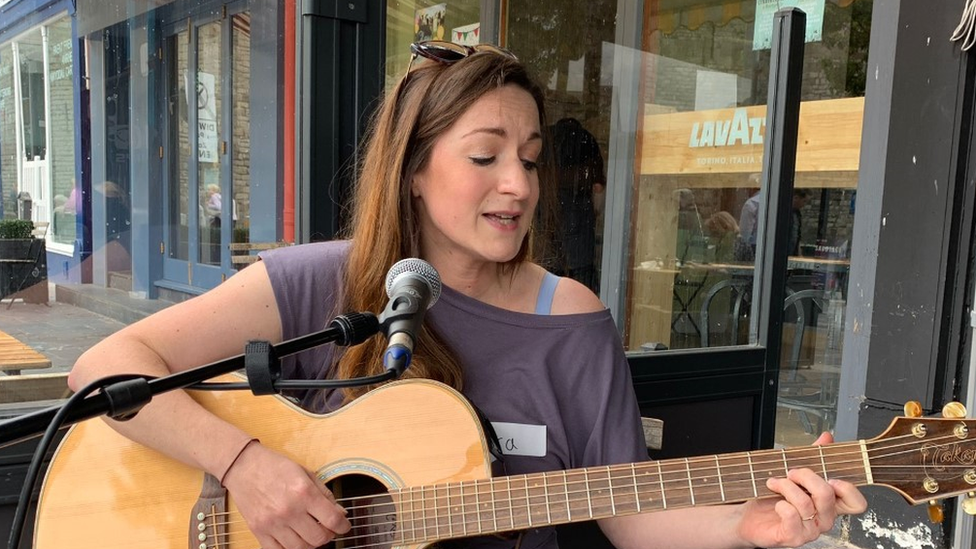
Sera says writing songs in Welsh gives her more poetic licence
From Super Furry Animals to male voice choirs, music is an undeniable part of Welsh culture.
Singer-songwriter Sera said she belonged to a thriving "Welsh-language scene" of fellow musicians who write and perform in Welsh.
"I express my Welsh identity through music," she said.
"You get a bit more poetic licence through Welsh and I have more of an emotional connection in Welsh.
"I have such a strong connection to the landscape and that filters through to my subject matter."
Music has gone hand-in-hand with Wales' recent football success, with performances of unofficial anthem Yma O Hyd at the Cardiff City Stadium before the World Cup play-off semi-final and final.
Musician and former president of Plaid Cymru Dafydd Iwan said hearing his song being sung by fans made him "emotional".
"I often cry when I sing, but it wasn't football that made me cry in that stadium," he said.
"It was the fact there were 30,000 people singing with all their passion - it hit me like a powerful force."
'We embrace Welsh success'
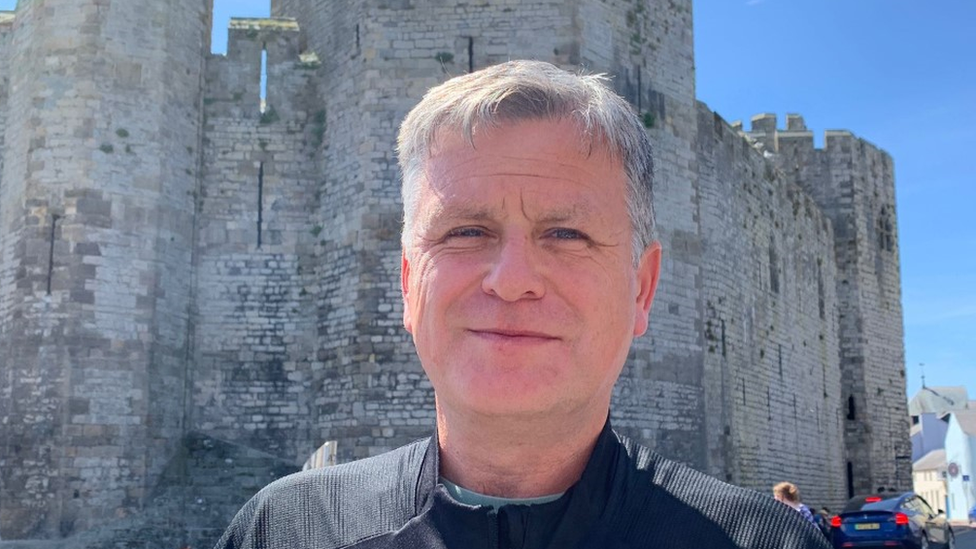
Cymru Premier manager Gwyn Derfel says the football team is connected to the history and culture of the country
Rugby has long been seen as the national sport of Wales, but recent polls have shown football may be overtaking it in popularity.
Cymru Premier general manager Gwyn Derfel said the country "embraces Welsh success".
"There is a slight rugby/football divide but most people support Wales in whatever, be it rugby, football or tiddlywinks.
"When you're talking about the Welsh-ness, with the football side, the key element is the sentiment is genuine from the association."
The Welsh team has a history of being connected to the history and culture of the country, something Gwyn said was important to the football association.
"The media team educate [the team] on who they are representing," he said.
"In 2015, we were away in Belgium and the players had agreed to travel after the game an hour-and-a-half on a coach to Ypres and Mametz Wood where a lot of the Welsh soldiers fell in the great war.
"When we qualified for 2016, [the players went] to Aberfan… it was the 50th anniversary of the disaster and they did it quietly."
You can listen to the full programme on BBC Sounds

STEREOPHONICS LIVE: Welsh rock royalty Stereophonics headline the Principality Stadium
BINGE-WATCH READY?: Here’s some programmes to keep you entertained

Related topics
- Published6 March 2022
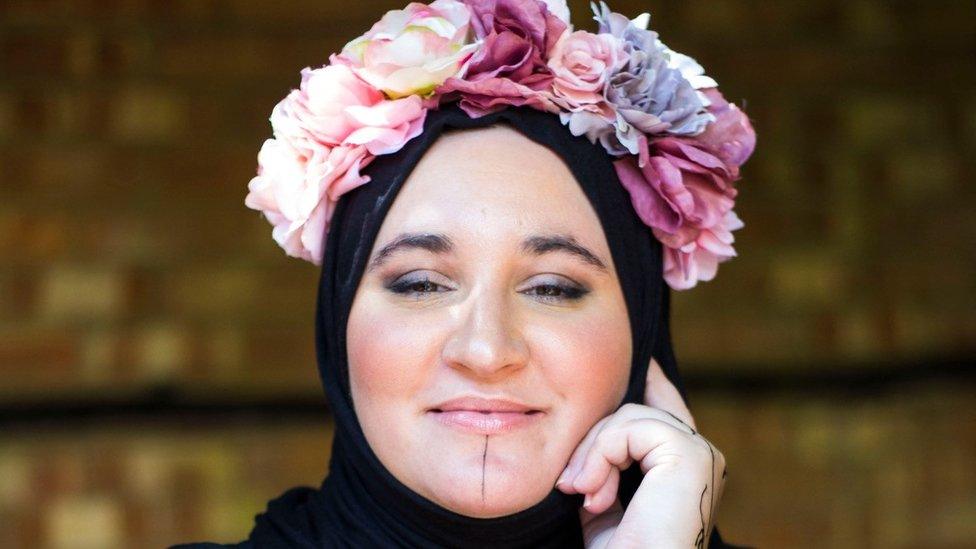
- Published17 December 2020
